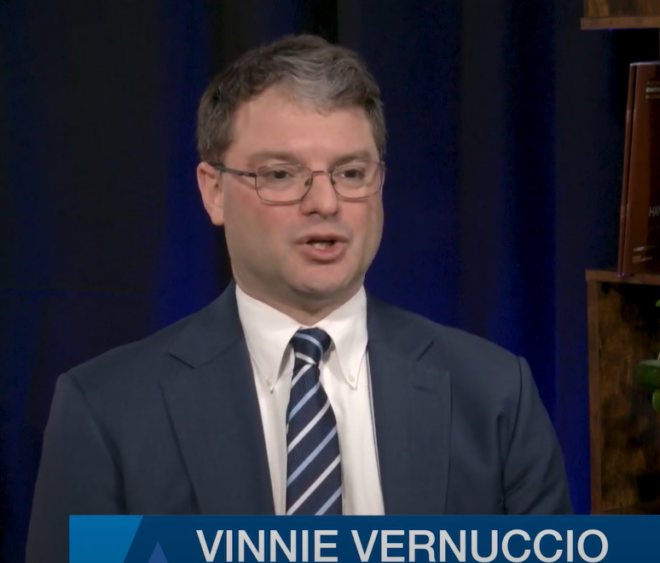Posts tagged Labor Policy
Top 10 trucking policies likely to be affected by Trump’s return
November 7, 2024 // Resetting standards for truck emissions and independent contracting expected to be on the agenda

U.S. Has Certified Unions for 50,000 Student Employees
October 31, 2024 // National Labor Relations Board has approved dozens of bargaining units for housing and dining workers, in addition to teaching assistants. The NLRB released data Monday that underscored one way that could manifest itself. The federal agency said that it has certified 54 bargaining units for more than 50,000 student employees since 2022, in the wake of its 2021 withdrawal of a rule proposed by the Trump administration that would have made it much harder for graduate students on private college campuses to form unions.

The Highest Stakes Commentary: Kim Kavin
October 16, 2024 // In this version of the ABC Test, Part B states that a person can only be a legally operating independent contractor if: The person performs work that is outside the usual course of the hiring entity’s business. That line has been an unmitigated income- and career-destroyer for Californians in more than 600 professions. It hit everyone from comedians who could no longer perform at comedy clubs to translators who could no longer provide translation services for translation companies to freelance writers who could no longer write articles for publishers. Owner-operator truckers are still battling in the courts and trying to explain how it could decimate the supply chain, with the threat of taking so many self-employed truckers off the road. The damage to people’s livelihoods was so significant that within a year—just one year—of AB5 going into effect:
Employment Law Landscape Could Change After Election
September 16, 2024 // During the Trump administration the NLRB majority narrowed the scope of the National Labor Relations Act in several key respects and established a more neutral approach to union organizing. The Biden/Harris administration, which styled itself as the “most union-friendly in history,” reversed virtually all of the Trump-era policies, significantly expanded the scope of the law, and tilted the organizing landscape in favor of organized labor, Hayes said.

Interview: Independent Contractors and Union Reforms, How @VinnieVernuccio Champions Worker Choice
September 12, 2024 // Unions are stuck in this turn of the last century industrial revolution, a one-size-fits-all adversarial business model that most workers today don't want. I do see a place for unions if they embrace a voluntary business model and become like professional service organizations. Unfortunately, they're not there. If you're under a union contract, you're stuck with the wages, the benefits, the vacations, [and] the hours they negotiate for you. It's actually impossible for the employer to unilaterally say, “you're doing a great job, I'm going to give you a raise,” or “I'm going to give you a bonus,” or, “hey, you want more vacation for a little less money?”
Op-Ed: Kamala Harris aims to screw workers AND businesses to help Big Labor bosses
September 2, 2024 // Yet on issues of labor, no speculation is needed: Harris has consistently, loudly and unequivocally advocated for policies that grant union officials unprecedented control over both workers and their pocketbooks. Most notably, the union-label Harris has repeatedly expressed support for the repeal of every state Right to Work law in the country.
Kamala Harris’s War on American Workers
July 29, 2024 // Harris’s labor policy platform is designed to force every American worker into a union. Big Labor is one of the Democratic Party’s fattest cash cows, spending at least $1.8 billion to elect the Biden-Harris ticket and down ballot Democrats in 2020. The more union dues-paying workers there are, the more money flows into Democratic campaign coffers. The centerpiece of Harris’s plan is banning right-to-work laws, which allow workers to earn a living without being forced into a union as a condition of employment. Right-to-work laws, which protect more than 166 million Americans in 27 states, promote economic growth and prosperity.
Opinion: Kamala Harris’s California quid pro quo for unions
July 28, 2024 // Prime Healthcare Services alleged that the union then told them that it could make the problem go away. “Dave Regan, the president of SEIU-UHW, repeatedly informed Prime… that Harris would approve Prime’s acquisition only if Prime allowed SEIU-UHW to unionize workers at Prime’s hospitals,” according to court documents. SEIU donated to Harris’s 2010 and 2014 campaigns for attorney general as well as her successful 2016 Senate bid. A district court dismissed the lawsuit. It didn’t dispute that there may have been an arrangement between Harris and the union. It instead said that Harris had the legal power to rig the system this way.
Pro-Union Advocates Push to Fill NLRB Vacancy for Wrong Reason
August 22, 2023 // Union officials are seemingly concerned her absence will thwart the advancement of a pro-union agenda. As one labor leader lamented, it is “certainly in the interest of the unions … to have a functioning board with good, strong, pro-worker advocates. The NLRB is supposed to make it easier for workers to organize, not harder.” There are two problems with such complaints from union leaders. The first is that being pro-union is not the appropriate role for the NLRB, which is supposed to be neutral, not biased in favor of unions. Yet, it is a common misconception that even President Biden repeated by saying, “the policy of the federal government has been to encourage worker organizing and collective bargaining, not to merely allow or tolerate them.” Related National Labor Relations Board Says Profanity in the Workplace Is Just Fine As a recent report from the Competitive Enterprise Institute notes, “the claim that the NLRA [National Labor Relations Act] was meant to encourage unionization is contrary to the repeated claims of the late Sen. Robert Wagner, a New York Democrat and author of the law.” Instead, the NLRA attempted to strike a balance between providing the right to bargain collectively through a union while at the same time ensuring workers are free not to do so either.

The FTC’s Indefensible Position on Collective Bargaining
April 19, 2023 // In remarks last week at the University of Utah School of Law, FTC Commissioner Alvaro Bedoya argued that independent contractors should be allowed to bargain collectively. He acknowledged that courts have always treated collective bargaining by contractors as illegal under federal antitrust law. But he claimed that these courts have made a mistake: in fact, Congress never meant to stop small contractors, like truckers or plumbers, from forming a union and bargaining together. Bedoya’s interpretation would upset a century of careful balancing between antitrust and labor policy. It would also expose the contractors themselves to serious risks of abuse. And it would undermine well-established rules against collusion, price fixing, and other restraints on trade. To see why Bedoya is so wrong, you have to understand labor law and antitrust law’s tangled history. Let’s start with section 1 of the Sherman Antitrust Act. Adopted in 1890, section 1 banned all contracts and conspiracies in restraint of trade. It did not, however, define trade restraints. Instead, it incorporated common-law standards. Under the common law, unions were treated no differently from any other combination of buyers or sellers. If they conspired to fix labor prices, they violated the law. And collective bargaining could be seen as one form of price fixing. As a result, the law sometimes treated unions as, essentially, labor cartels.
